The Little Prince is a short novel by the French writer Antoine de Saint-Exupéry. The novel “The Little Prince” was voted one of the best books of the 20th century in France in the books selected by the newspaper Le Monde.
This novel maintains worldwide sales of more than a million copies annually.
The Little Prince
د.ا4.97د.ا5.68
Arabic/English
A moving philosophical story that explores the innocence of childhood and the meaning of life through a pilot’s encounter with a little prince from a distant planet.
| Categories: | Literature, Novels, World literature, Children, Philosophy |
|---|---|
| Tags: | philosophy, stories, wisdom, World Literature |
| Author | |
|---|---|
| Year |
You may also like…
-
The Strange Case of Dr. Jekyll and Mr. Hyde
د.ا4.97Arabic / English
It is an exploratory novel of the dark side of human nature, where Dr. Jekyll, the idealistic medical scientist, is transformed into the monstrous Hyde character through his use of a chemical formula, reflecting the struggle between good and evil within the human soul.د.ا5.68 -
The Count of Monte Cristo
د.ا4.97Arabic/English
An epic novel of injustice, revenge, and redemption, narrating the journey of a young man who was deceived and unjustly imprisoned, only to return as a vengeful man with extraordinary wealth and power.د.ا5.68 -
The Old Man and the Sea
د.ا4.97Arabic/English
A symbolic novel that depicts the struggle of man with nature through the story of an old fisherman struggling to catch a giant fish in the open sea.د.ا5.68 -
Stefan Zweig’s Letters
د.ا4.97It is a collection of correspondence that reveals Zweig’s deep thoughts and reflections on life, love, and literature, in light of the transformations of his era.
د.ا5.68
Related products
-
Anichatin and relativity
د.ا2.13In this book, its author, Dr. Mustafa Mahmoud, tries in his style known as ease and extreme logic in understanding the theory of relativity of the physicist Albert Einstein so that it suits the understanding and perception of the general public, and in a strong objection to limiting information to a few scientists under the pretext of depth and specialization, which may lead to the isolation of science, supporting in his book what Einstein himself called for to spread science among people, Einstein hated scientific fortune-telling and fabrication of mystery, claim, and magnification, and he used to say that the truth Never mind.
د.ا4.26 -
What’s left is yours
د.ا2.13Ghassan Kanafani is a Palestinian novelist, storyteller, and journalist, and is considered one of the most famous Arab writers and journalists in the twentieth century. His literary works, including novels and short stories, were deeply rooted in Arab and Palestinian culture
د.ا3.55 -
The Forty Rules of Love
د.ا10.65is a novel written by the Turkish author Elif Shafak,[1][2][3] Her interest in writing this book was influenced by the degree she received in Gender and Women’s Studies.[4] The book was published in March 2009.[5] It is about the Persian mystic poet Maulana Jalal-Ud-Din, known as Rumi and his companion Shams Tabrizi.[6][7] This book explains how Shams transformed a scholar into a Sufi (mystic) through love.[8] More than 750,000 copies of this book were sold in Turkey and France
د.ا12.78 -
The blind and the deaf
د.ا2.13Ghassan Kanafani is a Palestinian novelist, storyteller, and journalist, and is considered one of the most famous Arab writers and journalists in the twentieth century. His literary works, including novels and short stories, were deeply rooted in Arab and Palestinian culture
د.ا3.55 -
Prisoner of Heaven
د.ا7.10After the shadow of the wind and the angel game, I ended my strange meeting with Carlos Zafon in the third part of the Tomb of Forgotten Books series in this piece that I read while trying to understand what was going on in his head, which wanted the prisoner of heaven to tell us the dark nights of Barcelona from the window of its prisons, that prison that embraced Martin for a long time and through which he excelled in writing The Game of the Angel, which was the hero of that novel David Martin and Isabella, and we got to know their end, which was not confirmed by the lines. The writer also explains that what we can consider a coincidence with us may be wisely studied and what we interact with with all honesty may be fake and obsolete as the first boot, the past is just images stuck in our heads and just a glance of it returns to expose itself, and opens new cracks in our hearts, pushing you to search and explore what the truth is and to what extent it can comfort you or in any proportion that may make you a wreckage between the legs, yet the search for it is The way of salvation,
د.ا8.52 -
My journey from doubt to faith
د.ا2.13I refused to worship God because I was immersed in worshipping myself and admired the flash of light that began to flash in my mind with the opening of consciousness and the beginning of the awakening from the cradle of childhood.
This psychological state was behind the controversial scene that recurs every day. I also missed the origins of logic and I am dealing with logic and I did not realize that I am contradicting myself as I recognize the Creator and then say who created the Creator and make him a creature at the time when I call him a creator, which is sophistry itself.
Moreover, to say a first cause of existence requires that this cause must exist in itself and not dependent or need others to exist. If a cause needs a cause, this makes it one of the causal links and does not make it a first cause.د.ا3.55 -
Pulse
د.ا12.00A novel that sheds light on the internal conflict between mind and heart, and addresses themes of love, sacrifice, and the search for self in a world filled with challenges.
-
Death bed number 12
د.ا3.55Ghassan Kanafani is a Palestinian novelist, storyteller, and journalist, and is considered one of the most famous Arab writers and journalists in the twentieth century. His literary works, including novels and short stories, were deeply rooted in Arab and Palestinian culture
د.ا4.97

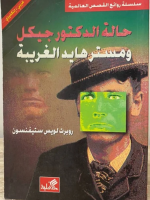
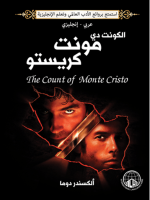
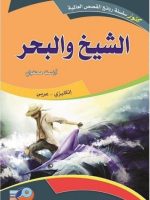
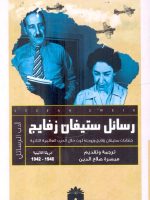
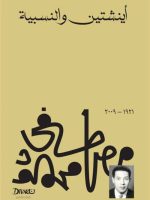
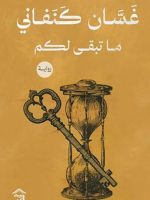
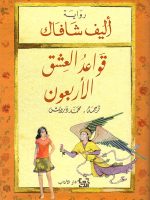

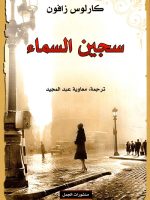
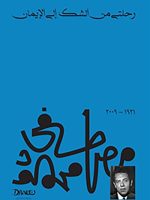
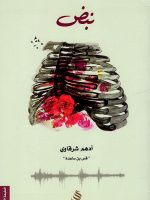
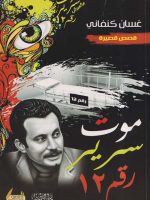
Be the first to review “The Little Prince”